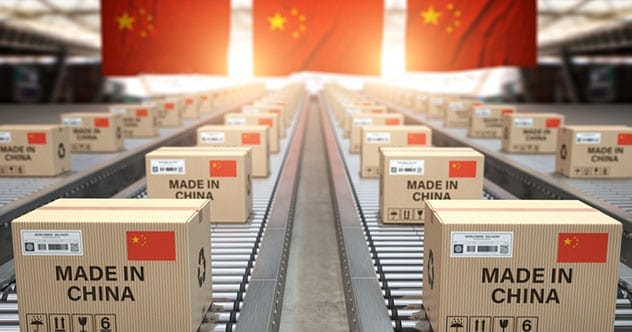China, a nation of technological prowess, has implemented unique forms of control. The Communist Party (CCP) uses social engineering to monitor its citizens’ behavior through a Social Credit system. Let’s explore some of the more unusual bans that have been put in place.
1. Ghosts & Time Travel
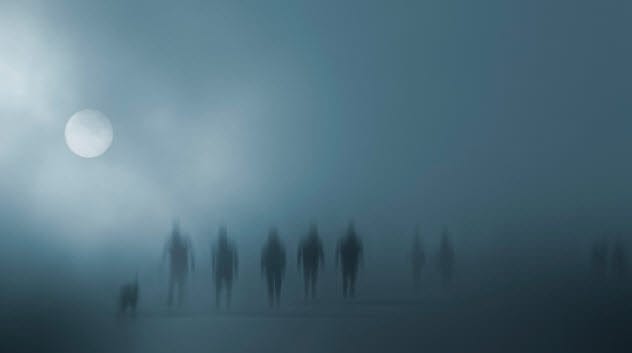 The CCP is wary of anything that could undermine its authority, including supernatural elements. Therefore, films depicting “terror, ghosts, and the supernatural” are banned. Even Sony Pictures couldn’t get their *Ghostbusters* remake through, despite renaming it and removing scenes. Time travel movies and TV shows were also memory-holed back in 2011 to prevent filmmakers from challenging the Party’s version of history.
The CCP is wary of anything that could undermine its authority, including supernatural elements. Therefore, films depicting “terror, ghosts, and the supernatural” are banned. Even Sony Pictures couldn’t get their *Ghostbusters* remake through, despite renaming it and removing scenes. Time travel movies and TV shows were also memory-holed back in 2011 to prevent filmmakers from challenging the Party’s version of history.
2. Strange Company Names
 In 2017, the State Administration for Industry and Commerce declared that company names deemed too strange, offensive, or excessively long would no longer be tolerated. New businesses can’t adopt “politically insensitive” names either. A condom maker with a particularly verbose name was one of the first to be affected. Businesses featuring broken Chinese are also prohibited. Social media users speculated that companies with unusual names would soon disappear following the government crackdown.
In 2017, the State Administration for Industry and Commerce declared that company names deemed too strange, offensive, or excessively long would no longer be tolerated. New businesses can’t adopt “politically insensitive” names either. A condom maker with a particularly verbose name was one of the first to be affected. Businesses featuring broken Chinese are also prohibited. Social media users speculated that companies with unusual names would soon disappear following the government crackdown.
3. Harrison Ford
Harrison Ford, a vocal advocate for Tibetan independence, is banned from entering China. His views were influenced by his ex-wife, Melissa Mathison, who worked on the film *Kundun*, which was poorly received in China due to its depiction of the Dalai Lama’s monastic upbringing. Both Mathison and Martin Scorsese, the film’s director, were banned, and Disney apologized for offending its “friends.”
4. Open Taxi Windows, Pigeons & Ping Pong Balls
In 2012, taxi cabs in China had their window handles removed ahead of the country’s 18th National Congress in Beijing. Customers were required to sign agreements not to open windows or doors at “important venues.” Deadly weapons, including kitchen knives, were banned from stores. Pigeon owners couldn’t let their pigeons fly free, and citizens had to show ID to buy remote-controlled planes, all to prevent dissent during congress.
5. A Plague Simulation Game
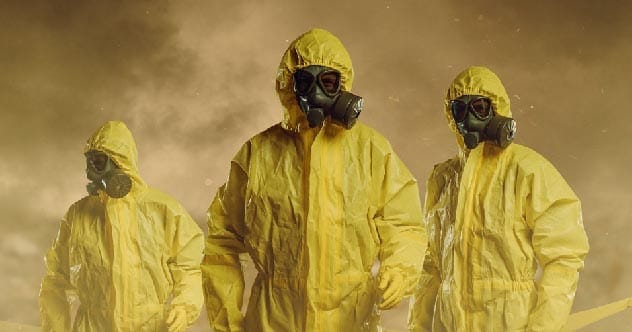 At the height of the coronavirus outbreak, the mobile game *Plague Inc.* became popular. The game involves spreading a deadly pathogen worldwide. Chinese censors removed it from digital platforms, arguing it contained “content that is illegal in China,” following a clampdown on information related to the COVID outbreak. The CCP has been accused of underreporting COVID-related deaths and stalling investigations into the virus’s origins.
At the height of the coronavirus outbreak, the mobile game *Plague Inc.* became popular. The game involves spreading a deadly pathogen worldwide. Chinese censors removed it from digital platforms, arguing it contained “content that is illegal in China,” following a clampdown on information related to the COVID outbreak. The CCP has been accused of underreporting COVID-related deaths and stalling investigations into the virus’s origins.
6. South Park
After comparisons between President Xi Jinping and Winnie the Pooh, the character was banned in China. *South Park* creators mocked China’s leadership in an episode called “Band in China,” where characters meet Pooh and Piglet in a re-education camp. All episodes of *South Park* were then removed from video streaming sites in China, and the creators issued a satirical apology.
7. Christmas Gatherings
 While Christmas is commercialized in China, the holiday has been stripped of its religious significance. In 2018, schools were told to avoid celebrating Western holidays, and teachers were warned against Christmas decorations and parties. Some cities banned stores from selling Christmas products. Churches that aren’t state-sanctioned face punishment, and Christians are often forced to hold Christmas gatherings in secret.
While Christmas is commercialized in China, the holiday has been stripped of its religious significance. In 2018, schools were told to avoid celebrating Western holidays, and teachers were warned against Christmas decorations and parties. Some cities banned stores from selling Christmas products. Churches that aren’t state-sanctioned face punishment, and Christians are often forced to hold Christmas gatherings in secret.
8. Images of Umbrellas and Jasmine
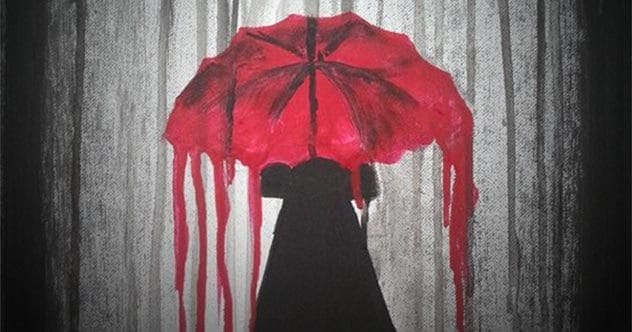 China censors symbols of resistance, including any discussion of the Tiananmen Square Incident. References to the Jasmine Revolution are also heavily censored. Images of umbrellas, symbols of the Hong Kong Umbrella Movement, faced similar censorship. Journalists were even told that umbrellas were off-limits during President Xi Jinping’s visit to Macau in 2014.
China censors symbols of resistance, including any discussion of the Tiananmen Square Incident. References to the Jasmine Revolution are also heavily censored. Images of umbrellas, symbols of the Hong Kong Umbrella Movement, faced similar censorship. Journalists were even told that umbrellas were off-limits during President Xi Jinping’s visit to Macau in 2014.
9. Wordplay
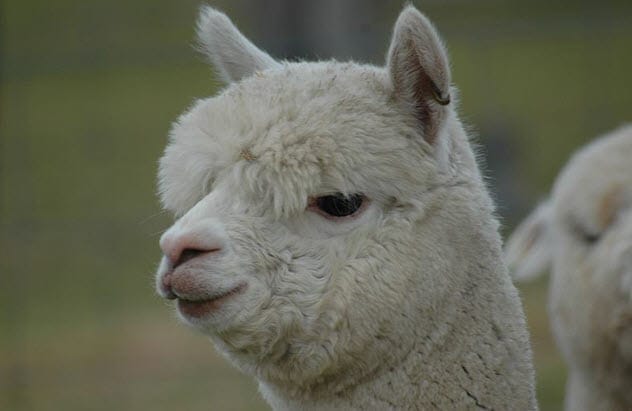 Chinese citizens use wordplay to bypass internet censorship. The term “Grass Mud Horse” (Caonima), which sounds like a vulgar phrase in Mandarin, became a symbol of resistance. Alpaca-themed memes and content spread rapidly. The government blacklisted content that could trigger social unrest, including references to Mud Horses and river crabs, claiming it was to protect Chinese culture.
Chinese citizens use wordplay to bypass internet censorship. The term “Grass Mud Horse” (Caonima), which sounds like a vulgar phrase in Mandarin, became a symbol of resistance. Alpaca-themed memes and content spread rapidly. The government blacklisted content that could trigger social unrest, including references to Mud Horses and river crabs, claiming it was to protect Chinese culture.
10. Erotic Banana Eating
 China’s Ministry of Culture condemned live-streaming services for spreading pornographic and violent broadcasts. Streamers were banned from wearing revealing clothing, and erotic banana eating was outlawed, as the ministry believed these streams endangered the nation’s “social morality.” Streaming companies must monitor broadcasts, and hosts must register with the government and undergo facial recognition scans.
China’s Ministry of Culture condemned live-streaming services for spreading pornographic and violent broadcasts. Streamers were banned from wearing revealing clothing, and erotic banana eating was outlawed, as the ministry believed these streams endangered the nation’s “social morality.” Streaming companies must monitor broadcasts, and hosts must register with the government and undergo facial recognition scans.
Conclusion
From ghosts and time travel to bananas and alpacas, the list of bizarre things banned in China reflects the government’s extensive efforts to control information, culture, and expression. These bans reveal the lengths to which the CCP will go to maintain its power and shape its citizens’ lives.


